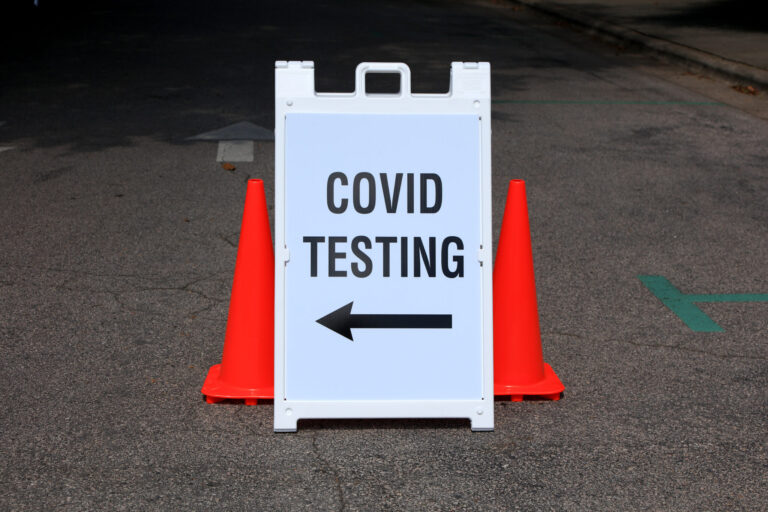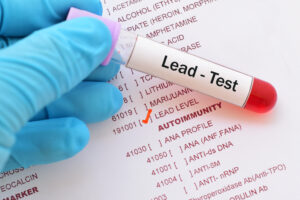- In today’s Recommendations for Industry, we discuss a new COVID-19 treatment. Read more below.
- The most recent report from the American Academy of Pediatrics (AAP) shows that COVID-19 children cases are rising in the U.S. In fact, children with COVID-19 account for almost 27% of all reported US weekly cases. In Texas and Florida, the rise in cases is linked highly to schools.
- In today’s WHO briefing, the head of the WHO has “called for a global moratorium on COVID-19 vaccine booster doses to be extended until the end of the year to allow more people in low- and middle-income countries to be vaccinated.” While high-income countries have pledged 1 billion doses, less than 15% of the supply has been sent to needed countries.
- Additionally, similar to what TAG has said before, the WHO says that “COVID-19 is likely ‘here to stay with us’ as the virus continues to mutate in unvaccinated countries across the world.”
- An observational study published in Nature Medicine, yesterday, has found that Pfizer’s COVID-19 vaccine to be 96% effective in pregnant women.
- NPR reports that there are new studies finding evidence of ‘superhuman’ immunity to COVID-19 in some individuals.
Food Safety & Public Health:
- Bovine spongiform encephalopathy (BSE) aka ‘mad cow disease’ has been detected in two Brazilian meat plants. These are the fourth and fifth cases of BSE detected in 23 years of WHO surveillance.
- The WHO is tracking the Nipah virus in India, a disease which has no known cure or vaccine and a 40 – 75% mortality rate!
- The FDA has updated its numbers on the two Cyclospora outbreaks; there are now over 800 people in 34 states with confirmed infection.
- Additionally, the FDA has no further information on the specific brand or flavor of cake-mix associated with the 12-state coli outbreak.
[em_section_title layout=”1″ title=”__empty__” title2=”Key ” title_highlight=”Points:” title_sub=”__empty__” title_icon=”__empty__” show_bar=”__empty__” show_img=”__empty__” description=”__empty__” title_lr=”t_left” _id=”923669″ custom_css=”{`kc-css`:{`any`:{`title-text`:{`font-size|+ .section-title h2,.title_tx h2`:`1.4em`,`padding|+ .section-title h2,.title_tx h2`:`27px inherit inherit inherit`},`highlight-text`:{`color|+ .section-title h2 span,.title_tx h2 span,.em-icon i`:`#973333`}}}}” image=””]
Recommendations for Industry
REGEN-COV Showing Positive Signs for COVID Treatment
A new study on REGEN-COV has shown it to be effective as an early-stage therapy to reduce risk of hospitalization and mortality from COVID-19. As stated in the report, the drug, which is a mixture of two monoclonal antibodies, “prevented symptomatic COVID-19 and asymptomatic SARS-CoV-2 infection in previously uninfected household contacts of infected persons. Among the participants who became infected, REGEN-COV reduced the duration of symptomatic disease and the duration of a high viral load.” A monoclonal antibody is an antibody made by cloning a unique white blood cell.
With the study including 753 participants given REGEN-COV and 752 participants given a placebo, the treatment proved to be effective against the current variants, including Alpha, Beta, Delta, Epsilon and Gamma, for all age groups. Side effects were seen to be the same in the two groups.
As a preventive therapy, REGEN-COV was said to reduce symptomatic infection by 81.4%, with efficacy apparent within days. Additionally, for those who did develop symptoms, there was a two-week difference in the mean duration, from 1.2 weeks in the REGEN-COV group to 3.2 weeks in the placebo group. The study also found the concentration to stay at therapeutic levels for at least a month.
An August call held by the CDC including the FDA and NIH, discussed the current clinical and research landscape of using monoclonal antibodies for post-exposure and prophylactic treatment. As outlined in the study above, these treatments appear to be beneficial in preventing illness after exposure, early in the course of infection; especially for immunocompromised individuals who may not produce sufficient antibodies after infection.
While the efficacy of REGEN-COV does not seem to be getting a lot of traction in the media, TAG sees it as a significant development. Similar to the current preventive steps for the flu, we see long-term control and prevention of COVID as including:
- Vaccination for prevention
- Positive diagnosis treatment (e.g., Tamiflu/flu, REGEN-COV/COVID)
- Avoidance – staying home when sick.
TAG’s Risk Matrix:
Currently 28 states have a TPR > 10% and case rate > 25 cases/100k people. Additionally, there are 16 states with a TPR 25 cases/100k people. South Dakota, Alabama, Oklahoma, Tennessee, Mississippi, Georgia, and Idaho continue to have high Test Positive Rates; with South Dakota at 23%.
Table 1.

Figure 1.

Table 2.

Table 3.

In Case You Missed It
- In Tuesday’s Recommendations for Industry, we looked at the Mu variant and the Flu Vaccine. Read more here.
- S. COVID-19 cases have reached 40 million with 4 million of those cases arising from the last 4 weeks. The number is set to be much higher as the 4 million were those identified with a COVID-19 test and doesn’t count those that haven’t been tested!
- Through this, the FDA has published vaccine information (videos and pamphlets) in multiple languages, including Spanish, Korean, Navajo, Chinese, Tagalog, and Vietnamese.
- As of yesterday, Monday, two primary COVID-19 safety nets have ended, affecting millions including: (a) the loss of all unemployment benefits; and (b) the expiration of the federal eviction moratorium.
- The Mu COVID-19 variant has been identified in 49 states; it hasn’t been identified in Nebraska! However, there is evidence to show that cases of the Mu variant hit a peak in mid-July and has since decreased.
- While some health officials are advising the White House to scale back on its COVID-19 vaccine booster plan (NYT), the FDA is set to meet on September 17 (CIDRAP) to discuss COVID-19 vaccine third doses by Pfizer. The meeting will be livestreamed on YouTube. At the same time, European officials as part of the European Centre for Disease Prevention and Control are saying that boosters are not urgent (CIDRAP); instead, “the priority now should be to vaccinate all those eligible individuals who have not yet completed their recommended vaccination course.” In fact, Reuters reports that EU watchdogs are currently studying data on Pfizer’s vaccine booster dose!
- A recent study finds that “the odds of long COVID-19 fall by more than half after two doses of vaccine, the risk of hospitalization drops by more than two-thirds, and breakthrough infections are nearly twice as likely to be asymptomatic.” Some risk factors that could lead to a breakthrough COVID-19 vaccine after the 1st vaccine dose was linked to frailty in >60 years or those living areas of high deprivation.
- The WHO is currently paying attention to a new COVID-19 variant first identified in South Africa in May 2021. There is fear that the mutations and number of mutations are higher than other variants. Al Jazeera discusses this further.
- Last Friday, Tyson Foods announced that it would provide “up to two weeks of paid administrative leave if they tested positive for Covid-19 over the next six months” for fully vaccinated employees.
Food Safety & Public Health:
- The FDA has provided further guidance for the food industry, “Microbiological Considerations for Antimicrobial Agents Used in Food applications” to “assist submitters of food additive petitions (FAPs), food contact notifications (FCNs), generally recognized as safe (GRAS) notices (GRNs), and threshold of regulation (TOR) exemption requests in providing data to demonstrate that an antimicrobial agent (defined in Section II.A) achieves its intended technical effect in or on food or food contact articles”
- On October 19 – 21, 2021, the FDA is set to host New Era of Smarter Food Safety Summit on E-Commerce to discuss the various types of B2C e-commerce models (including produce and meal kit subscription services, ghost kitchens, dark stores) and the safety risks associated with B2C e-commerce. For more information and to register, check this out!
- According to the CDC, healthcare associated infections rose in 2020 with a significant rise in MRSA.






